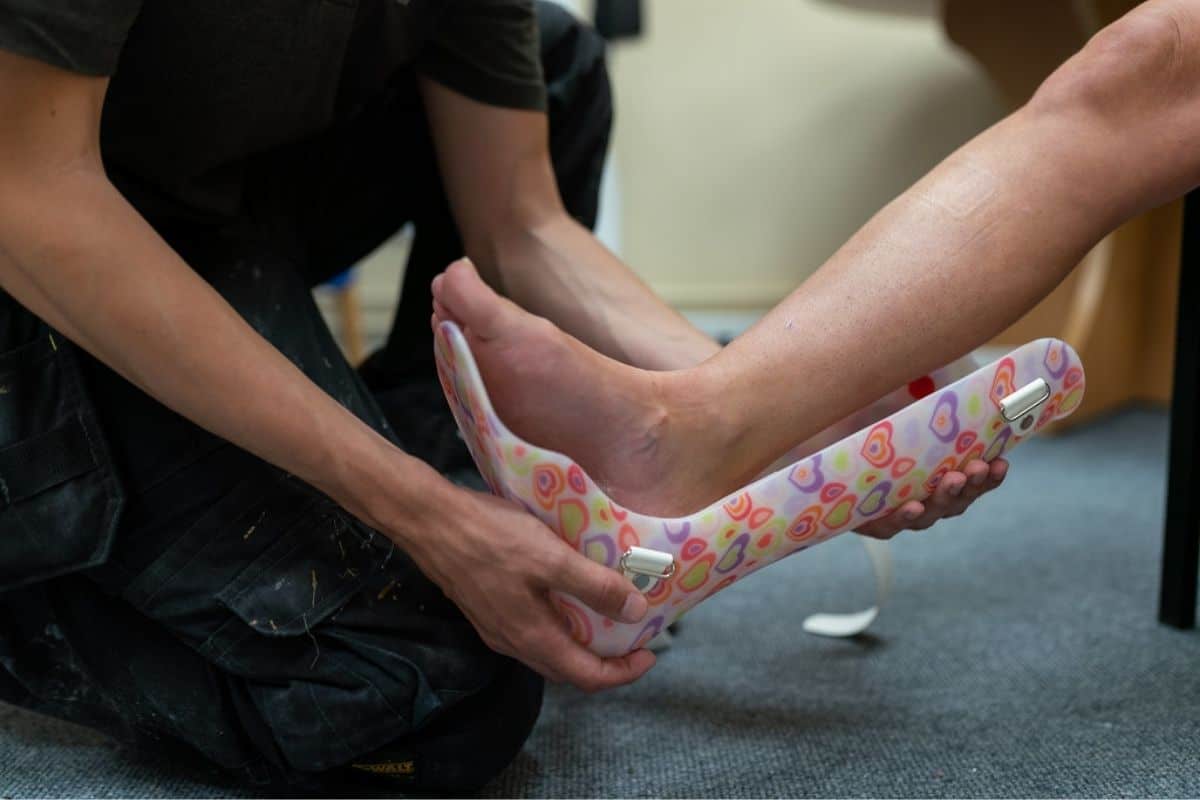Orthotics are useful devices designed to improve your skeletal structure and strength. They are prescribed devices primarily used to treat medical issues involving the feet by providing support and stability to the sole, heel, arches, and toes.
Unlike insoles, every orthotic is unique and custom-made for the patient – doctors use casts and impressions of your foot to make personalized orthotics designed to suit your specific needs.
But while orthotics are incredibly beneficial for the people they are prescribed for, they are often seen as unnecessary due to being custom-made.
On top of that, personalized orthotics can be expensive, and can sometimes cost up to $1000 dollars each! If you’re on a low income or are financially unstable, this can be too much of a cost to afford; but can the cost of orthotics be covered through Medicare?
If you need orthotics but you don’t know whether or not they will be covered by Medicare, then don’t worry – this guide is here to clear up any confusion.
In this article, we’ll look at whether Medicare covers the cost of orthotics, as well as how much of the costs Medicare can cover and how you can qualify for these subsidies.
So let’s get started, shall we?
Table of contents
What Are Orthotics?

First, let’s understand what exactly orthotics are.
Orthotics are a type of external medical device that is used to provide support and stability to the user’s foot.
They are typically custom-made to suit the patient’s specific medical needs, and are placed inside the wearer’s shoe similar to an insole.
Orthotics can be prescribed by a doctor to treat various conditions relating to the patient’s feet.
These include biomechanical foot issues that affect the patient’s ability to walk and/or run, supporting weak arches to alleviate pain, and helping to straighten and align the wearer’s spine to treat issues occurring in the hips, knees, and back.
They can also be beneficial in treating symptoms associated with other health issues such as arthritis and diabetes that can have a negative impact on the feet, or for treating acute pain in the heel, arch, and ball of the foot.
A foot orthotic can come in three different types: soft, rigid, and semi-rigid. These have different densities and each type is used to treat different conditions. The required type of orthotic is determined by the doctor when prescribing the orthotics.
Doctors will use casts, scans, and impressions of the foot to create a personalized orthotic perfectly suited to each patient.
However, many custom-made medical aids are seen as medically unnecessary and, as a result, aren’t usually covered under Medicare. So where do orthotics fit in?
Does Medicare Cover Orthotics?
Unfortunately, in most cases, Medicare will not cover the cost of orthotics. In general, orthopedic inserts and shoe fittings aren’t covered by original Medicare, and this includes orthotics.
However, there are some ways that you can have some of the cost of your orthotics subsidized through Medicare.
Medicare Part B offers partial coverage of orthotic inserts and shoes as long as they are prescribed and custom-made.
If the doctor that prescribed the orthotics has deemed that they are medically necessary, Medicare Part B can cover up to 80% of the cost of the orthotic devices. Pre-made and over-the-counter orthotics aren’t covered by Medicare, however, and the cost will need to be paid in full.
This doesn’t mean that all custom-made orthotics will have their cost subsidized, however, and there are some specific requirements that must be met beforehand.
First of all, both the doctor that prescribed the orthotic devices as well as the supplier who made them must also be enrolled in a Medicare program.
You must also qualify for and be enrolled in Medicare yourself, which comes with its own set of stringent requirements. Some Medicare programs don’t cover orthotics unless they are prescribed for diabetic patients.
The reason that Medicare Part B covers orthotics is that they are classified as “Durable Medical Equipment”, or DME.
This means that they are covered under the DMEPOS (or Durable Medical Equipment, Prosthetics, Orthotics, and Supplies) benefit, which subsidizes the costs of medically necessary devices.
This includes custom-made orthotics that a doctor has prescribed and deemed medically necessary. While the guidelines for having orthotics covered by Medicare can be a bit stringent, there is still the option to have up to 80% of the cost of your orthotics covered by Medicare as long as you reach the requirements.
How To Qualify For Medicare Coverage For Orthotics
So now that you know that Medicare only partially covers the cost of orthotics in certain cases, let’s take a look at how you can qualify for these subsidies.
As mentioned above, orthotics can only be covered through Medicare if they are deemed medically necessary by a doctor. This only applies for custom-made orthotic devices, however, and pre-made or over-the-counter orthotics won’t be covered.
Additionally, your doctor, the orthotics supplier, and yourself must all qualify for and be enrolled in a Medicare program in order for coverage to apply. Otherwise, you must cover the full cost yourself.
In order to qualify for Medicare, you must meet certain requirements. Recipients of Medicare must be 65 years of age or older, and be classed as a U.S citizen or permanent resident of the U.S that has been living there for a minimum of 5 years prior to application.
There are also income restrictions. Your monthly income must be equal to or below $1,010 for an individual (or $1,355 for a married couple).
As long as you are enrolled in Medicare and your doctor deems your orthotics medically necessary, you can then get up to 80% of the cost of your orthotics covered through the Medicare program.
Final Thoughts
Orthotics are incredibly beneficial for many people, but unfortunately they aren’t covered by Medicare in many cases. However, 80% of the cost of orthotic devices can be covered through Medicare as long as you meet the requirements.
So if you’re concerned about the cost of your orthotic devices but you qualify for coverage through Medicare, don’t worry! You can receive the treatment you need without having to break the bank!
Frequently Asked Questions
There are many types of custom orthotics, and they can cost anywhere from $300 to $800. Semi-custom orthotics cost between $60 and $300, and basic off-the-shelf inserts are available for as little as $10 to $20. Some health insurance plans won’t pay for custom-made orthotics.
Only a doctor or a podiatrist can diagnose and prescribe foot orthotics.
Orthotics are invaluable to overweight people because they can help reduce the impact on the ligaments of their lower bodies. It can help to reduce pain. Custom orthotics can help those with arthritis, diabetes, and chronic pain by improving gait and reducing muscle and ligament strain.
